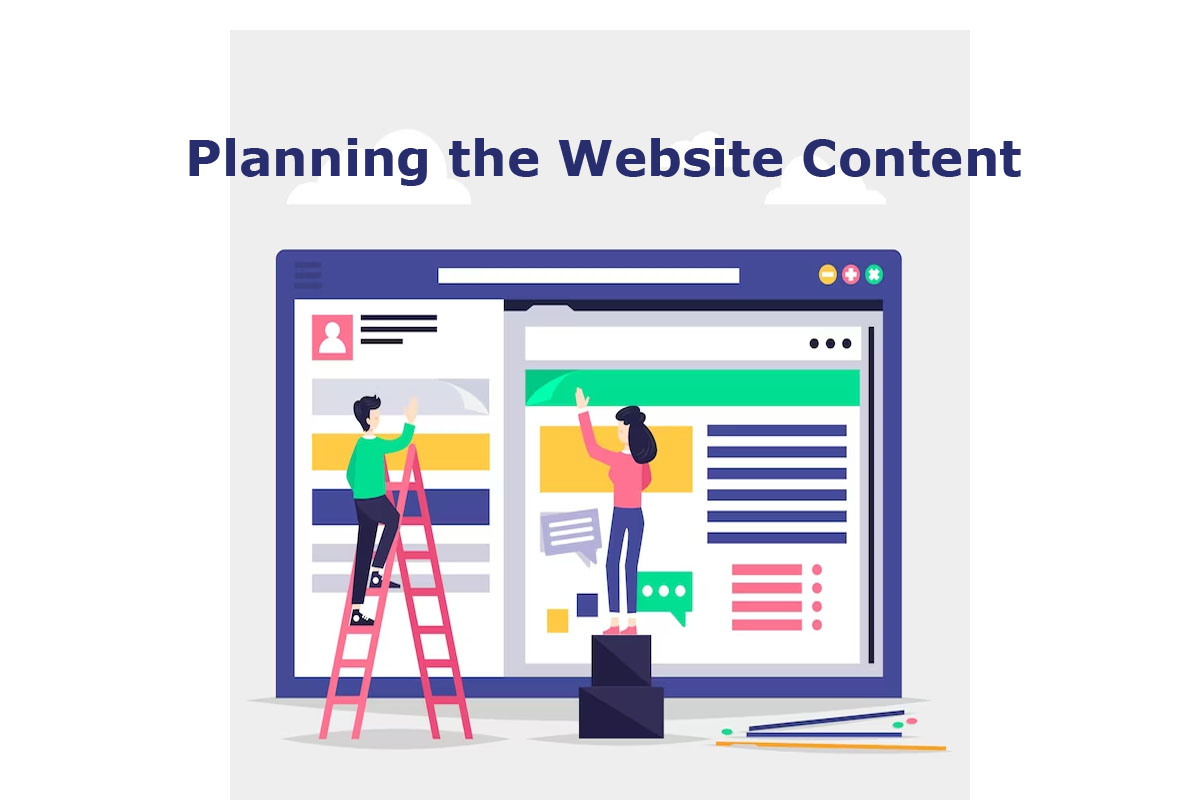Planning the Website Content
Planning the website content is necessary to create an engaging and successful online presence. Whether you are designing a personal blog, business website, E-commerce website, or any website, well-planned content can help attract and engage users. This article will mention some approaches to help you plan website content effectively.
Before that, you must remember that your website content plan should be flexible enough to adapt to trends and your evolving goals quickly. You can also regularly change your schedule according to your needs.
Effective Ways of Planning Website Content
Identify and Define your Goals: Clearly outline the purpose of your content, whether you are writing informative content or content for selling products, or more. This outline of goals will help you understand what type of content you need to create.
Understand your Target Audience: Before you search for keywords, you must understand what type of audience you will target based on their needs, demographics, and interests. This step will help you shape your content’s topic, tone, and style.
Keywords Research: You must do proper keyword research to attract organic traffic to your website. This will help you get relevant keywords that your target audience might use. This will eventually help create content to match your user’s interests and improve your website’s search engine visibility.
Type of Content: You must decide what content you will include on your website, like blogs, articles, case studies, videos, or product pages. Based on the type of audience, you can diversify the content types.
Content Categories and Topics: After deciding the keywords, you need to determine the order of your content in logical categories. Then select the topics that go under each category, and also that will resonate with your target audience. This will give your website a proper structure and allow your audience to navigate around your website.
Content Schedule: Planning a website’s content is not yet essential. It would help if you created a proper schedule for when you will publish or post the content.
Content creation: You can start creating content after deciding on the topics. Every piece of content should give some value to audiences. You must ensure the content is well-researched and written relevant to your target audience’s needs and interests.
Addition of Visual Aids: Adding images to each piece of content is essential. You can add more than one, but at least one is vital since it will make your content visually appealing, easy to understand, and engaging.
Other Important Steps to Keep in Mind While Planning Website Content
Internal links: Plan out the content that links with other content. This will give the proper navigation to your audience. Another significant benefit is that your website search engine will improve and spread authority over different pages.
Search Engine Optimisation: You need to optimize your website using relevant keywords naturally within the content, titles, and meta description. This will improve your website’s search engine visibility.
Call to Action: Decide what actions you want your audience to take. Whether subscribing to newsletters, contacting you, or making a purchase based on it, create your CTA to make it easier for people to get in touch with you.
Benefits of Planning Website Content
Planning website content offers a wide range of benefits that can subsidize your website’s success and effectiveness of online presence. Let us look at some of the benefits:
Planning website content provides a roadmap for your website development. It provides a framework for your goals. Target audience, categories, topics, and content. It will offer you a clear direction to follow.
A content plan will help you maintain a consistent publishing schedule. Regularly updating your content can keep the audience engaged and motivate them to visit your website.
Good content planning will help you develop your brand identity and position yourself as an authorized and trustworthy in your field. Eventually enables you to create quality content and sets you apart from your competitors.
When you follow a content plan, you can track the performance of various pieces of content and assess which topics resonate most with your audience. This will help you make informed decisions about creating content in the future.
The planned content can spread to various channels, that includes social media, email marketing, and more. This will ensure consistent messaging across different platforms.
Conclusion
In conclusion, planning a website’s content should be well structured to be the foundational element of a successful website. It will help you join the target audience, build authority, improve your search engine, and drive meaningful actions aligning with your website goals.

